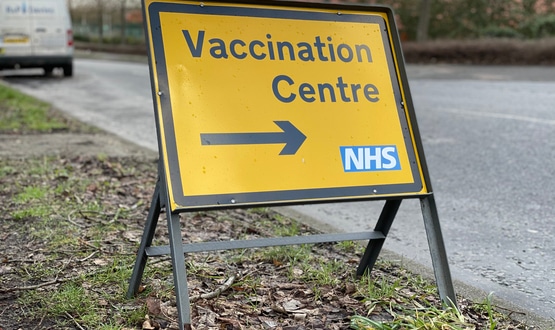Another view: of appraisal and software
- 25 June 2014

The big news in GP land this week is that the Royal College of General Practitioners and Clarity Informatics online GP appraisal toolkits are merging.
While this might not seem like earth shattering news, it has upset quite a few. For one thing, the PR has been quite confusing to the end user.
One email says what was free to RCGP members is now going to be charged for; and this has upset a lot of people. An email from Clarity seemed to suggest that RCGP members would get a 25% discount.
Another article suggested RCGP toolkit users could continue to use it for free for three years. No one is really sure.
The big two
For those that don’t know all the ins and outs of GP appraisal, it was brought in following the Shipman Inquiry (the public inquiry into Harold Shipman, the GP who was convicted of 15 murders, although the inquiry concluded he might have committed 250).
All GPs now have to have an annual appraisal which, despite the best efforts of the “educational” GPs to make it useful, has turned into a tick-box exercise.
You have to show you have done such things as an audit, collected the right number of CPD points, done a patient feedback survey, and a multisource feedback questionnaire. Unsurprisingly, several toolkits exist to “help you” fill it all in.
As indicated above, the RCGP has one. It’s hated by some – one local GP has probably spent more hours emailing the college to tell them how rubbish it is than he has spent doing his PDP. But, on the upside, if you are a member of the college you got free access.
The main alternative has been the Clarity toolkit, which started free (presumably some bit of the NHS was paying for it) and then went paid (presumably when they stopped).
Most GPs locally seem to think that it has improved a lot over time and is ok to use. The biggest issue is it lacks some fancy functions – like a mobile version – it costs money and lots of people, me included, object to being made to buy it.
Other products are available…
There are other products out there. There’s a piece of software called GP Tools that boasts partnerships with two NHS organisations, and which I believe some commissioning support units have purchased for their appraisees.
It’s free to use for individuals, being donation-ware. Since I refuse to pay for any toolkit, for years I did my appraisal on paper. However, when the local team banned this, I opted for GP Tools. I even donated!
For me, it was easy to use, had an app that linked to it, and was just what I need to “pass” my appraisal. It even included a clever survey feature and a shared learning feature.
Unfortunately, the local area team then decided to ban the use of GP Tools as well, even though there is national guidance that clearly states that GPs should have a free choice of software.
They claimed there were too many toolkits for appraisers to learn; even though, the previous year, my appraiser had no problems in using it.
As my revalidation date was weeks away, I chickened out in case they suspended me. Not that I didn’t fancy a free holiday; but my partners wouldn’t have been pleased.
The key question: who pays?
Most of the toolkits offer an admin view to CSUs. The appraisal teams can log-on and keep track of their doctors; who has completed their appraisal, who is overdue and so on.
I believe these views come free; saving CSUs the cost of buying their own monitoring software. If that’s the case, then you can see why CSUs would not want too many toolkits to be used; it’s easier to monitor everything through one system.
From that perspective, the merger of the RCGP and Clarity toolkits will probably make CSUs very happy. But I worry that there is a bigger issue at stake here.
CSUs and appraisers could sit down and work out what information they need and then create or buy-in a solution to deliver that.
They could have a decent API that allows other systems to talk to it, and allow a market to develop; leaving the user to choose which system to use, according to their perception of what best meets their needs.
Instead, they have opted for the cheap, easy option of effectively hoping for a monopoly and getting the user to pay for it.
Personally, I think this lack of thinking about what data is needed, and how it is to be shared, is endemic in the NHS. I also wonder if it’s becoming a problem to commission software.
To the average practice, department, possibly even hospital, creating the spec for a piece of software, getting it built and tested is daunting.
Where do you go? How much do you pay? What if it doesn’t work? You can see why it’s easy to buy to the one product that exists and hope it fits your bill.
The bigger picture
What we know from the smartphone revolution, though, is that programming is easy. There are thousands of developers out there. There are great tools for creating apps; and in most cases writing code isn’t expensive.
As well as more access to the data, do we need an NHS agency to help people design, commission and implement more bespoke software at reasonable prices?


Dr Neil Paul
Dr Neil Paul is a full time partner at Sandbach GPs; a large (22,000 patient) practice in semi-rural Cheshire. He is also one of the directors of 4GPs Ltd. Dr Paul has been involved in primary care IT and health service management for more than ten years in various roles, including PEC member and urgent care lead. In his spare time, he writes medical iPhone software and is a keen photographer.




